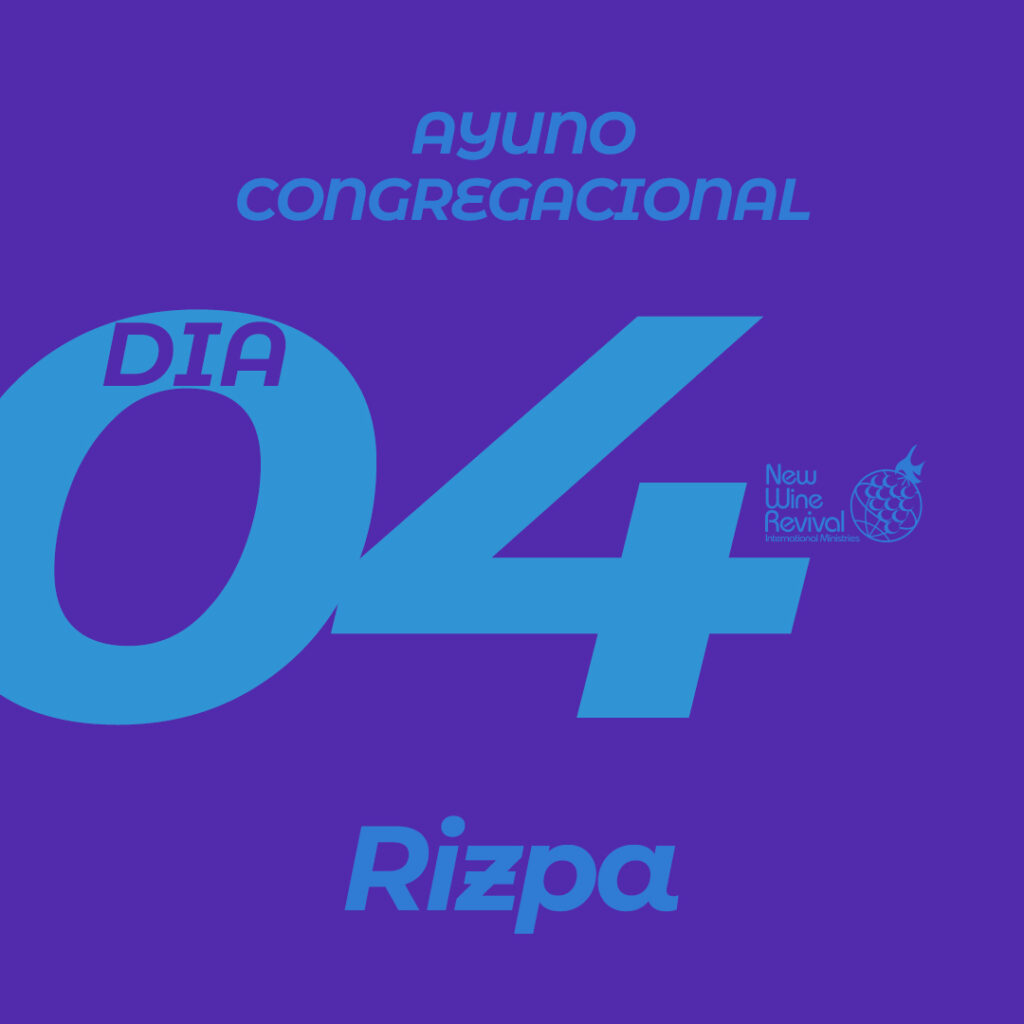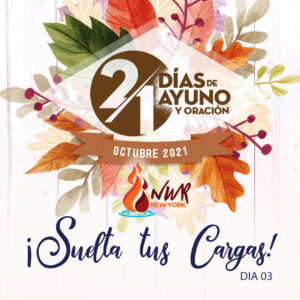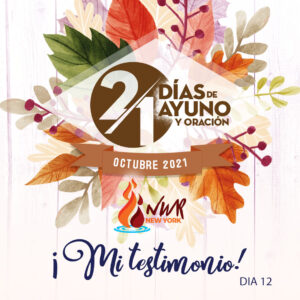
2 Reyes 21:8-14
8. El rey tomó a los dos hijos de Rizpa, hija de Aja, Armoni y Mefi-boset, que ella había dado a Saúl, y a los cinco hijos de Merab, hija de Saúl, que ella había dado a Adriel hijo de Barzilai meholatita,9. Entonces los entregó en manos de los gabaonitas, que los ahorcaron en el monte delante del Señor, de modo que los siete cayeron a la vez. Les dieron muerte en los primeros días de la cosecha de la cebada. 10. Y Rizpa, hija de Aja, tomó tela de cilicio y la tendió para sí sobre la roca, desde el comienzo de la cosecha hasta que llovió del cielo sobre ellos; y no permitió que las aves del cielo se posaran sobre ellos de día ni las fieras del campo de noche. 11. Cuando le contaron a David lo que había hecho Rizpa, hija de Aja, concubina de Saúl.12. David fue y recogió los huesos de Saúl y los huesos de Jonatán su hijo, que estaban en posesión de los hombres de Jabes de Galaad, quienes los habían robado en la plaza de Bet San, donde los filisteos los habían colgado el día que los filisteos mataron a Saul en Gilboa.13. David trajo de allí los huesos de Saúl y los huesos de Jonatán su hijo, y recogieron también los huesos de los ahorcados.14. Entonces sepultaron los huesos de Saúl y los de su hijo Jonatán en tierra de Benjamín, en Zela, en el sepulcro de Cis, e hicieron todo lo que el rey había ordenado. Después de esto Dios fue movido a misericordia para la tierra.
Rizpa, cuyo nombre significa carbón encendido o piedra encendida, fue concubina del Rey Saúl (2 Samuel 21:11) de quien procreó dos hijos (Armoni y Mefi-boset). Rizpa, aunque no es nombrada como una de las mujeres más extraordinarias de la Biblia, ella tuvo un papel muy importante; esto permitió que el Rey David actuara de la manera que ella pedía. Rizpa no se dejó abatir por el dolor de saber que sus dos hijos iban a hacer ahorcados para pagar los asesinatos que su padre (Saúl) había cometido contra los gabaonitas, a pesar de que había una promesa con Jehová “Habrá una misma ley para ustedes; será tanto para el extranjero como para el nativo, porque Yo soy el Señor su Dios” (Levítico 24:22).
Rizpa, a pesar de que estaba sola, sin hijos, y sin el padre de sus hijos, no tuvo pensamientos de auto conmiseración, todo lo contrario. Su dolor, su tristeza (tela de cilicio), la puso sobre la roca (“es mi Dios la roca en que me refugio … (2 Samuel 22: 2ª) y vigiló, entre 5 a 6 meses, de día y de noche los restos de sus hijos (2 Samuel 22:10). Esta mujer desafió las inclemencias naturales, la hostilidad de las fieras, y sobre todo el antagonismo de persona poderosas. Rizpa quería que sus hijos fuesen levantados de ese lugar. Lo admirable de esta mujer, es que no solamente se preocupó de los restos mortales de sus hijos sino también de los hijos de Merab[2], quien abandonó los cinco cuerpos.
La posición determinante de Rizpa era salvar a sus hijos a pesar de que estaban sin vidas, y actuó como una verdadera madre que vela por sus vástagos cuidando la dignidad de ellos aun después de la muerte. No los pudo salvar cuando estaban vivos, pero si podía -aunque no sabía cuándo- hacer que ellos tuviesen un lugar decente para poner sus restos. Esta madre no quería que la maldición de su marido continuara a sus hijos “Y tus cadáveres serán alimento para las aves del cielo y para los animales de la tierra, y no habrá nadie que los espante” (Deuteronomio 28:26).
Como vemos en esta historia, hay un mensaje inigualable para cada madre: a pesar de las circunstancias por las que están pasando tus hijos, no dejes de clamar por ellos. Aunque tus hijos estén “ahorcados” en algún vicio, actuación no agradable ante los ojos de Dios, síguelos con tus oraciones. ¿Cuántas madres han recibido noticias de que sus hijos se encuentran “muertos” espiritualmente? Vístete con la armadura de Dios, intercede, se un carbón encendido, profetizando y pensando que tus hijos son colocados en lugares donde ninguna fiera, ningún animal los siguen atacando. Busca el refugio, la roca de tu salvación, que es nuestro Señor Jesucristo para poder dejar todos esos sentimientos de dolor, angustia, ya que confías en El y, con Su ayuda intercesora frente al Padre, puedes hacer cambiar el destino de tus hijos, así como la actuación perseverante de Rizpa que acabó dando una lección de humanidad al mismo Rey David cuyo corazón fue tocado. David envió a colocar los cadáveres en un sitio donde merecían estar. Además, Dios al ver la actuación sincera de Rizpa, atendió las suplicas del país y termino el hambre en el país (2 Samuel 2:14). Ese pequeño gesto de Rizpa, quizá para algunos sin sentido, hizo que se conmovieran el Rey David y el Rey de Reyes.
La actuación silenciosa de Rizpa sonó más fuerte que lo que hizo Saul con los gabaonitas. El amor de madre a pesar de cualquier situación, es el tema central de la historia de Rizpa quien puso su propia vida en riesgo para proteger los cuerpos de sus dos hijos y lo hizo por tiempo largo, dejando a un lado su comodidad, su salud, su situación económica y casi su propia vida para lograrlo.
Mujer, no importa cómo estén tus hijos, qué estén haciendo, sigue, no te canses, no te rindas, no los dejes abandonados. Ora, intercede, ayuna, persevera. No des lugar al enemigo que viene en la noche como león rugiente a querer llevarse fácilmente a los hijos. “El ladrón solo viene para robar, matar y destruir. Yo he venido para que tengan vida, y para que la tengan en abundancia” (Juan 10:10). Madres continuemos nuestra labor con nuestros hijos, aun cuando no veamos excelentes resultados todavía, con el tiempo veremos la recompensa que Dios tiene para cada una de nosotras, y también para los hijos. ¡Que la perseverancia sea muy visible en nuestra labor como madre!
Algunas características de Rizpa:
•Concubina del Rey Saúl y madre de dos hijos de Saúl.
•Mujer con entereza: determinada, tranquila en el momento más difícil de su vida, autodominio como madre. “porque no nos has dado Dios espíritu de cobardía, sino de poder, amor y dominio propio” (2 Timoteo 1:7).
•Mujer desafiante: no le importó enfrentarse tanto al medio ambiente como también a la gente que la rodeaba. “Por tanto, acerquémonos con confianza al trono de la gracia para que recibamos misericordia, y hallemos gracia para la ayuda oportuna” (Hebreos 4:16).
•Mujer perseverante especialmente en el principio de la fe “Si perseveramos, también reinaremos con Él; Si lo negamos, Él también nos negara; 2 Timoteo 2:12.
•Aunque hablaba poco, sus actos hicieron sonidos más fuertes que sus palabras. (1 Corintios 2:9).
Aplicación para nuestra vida:
•Estar presente en la vida de nuestros hijos para dirigirlos, corregirlos, aconsejarlos, consolarlos. (Proverbios 4:1-4).
•Estar siempre paradas en la brecha por nuestros hijos, sus amigos y los hijos de las demás. Ser esas intercesoras como carbón encendido, al igual que Rizpa, derribando y limpiando hasta hacer conmover el corazón del Padre. Interceder orando por nuestros hijos es mostrar nuestro amor por ellos. “Ustedes me invocarán y vendrán a rogarme, y Yo los escuchare. Me buscarán y me encontrarán, cuando me busquen de todo corazón” Jeremías 29:12-13.
•A pesar de las circunstancias, no solamente como madres, sino como mujeres, debemos actuar fielmente ante el Señor. Como Rizpa, ahuyentando de día y de noche al enemigo, pero creyendo y descansando en la Roca que es nuestro Jesús de Nazareth. “Por eso les digo que todas las cosas por las que oren y pidan, crean que ya las han recibido, y les serán concedidas” (Marcos 11:24).
OREMOS:
Señor, en este día venimos a agradecerte por lo que estás haciendo en la vida de cada madre. Permite Dios que seamos madres como Rizpa, que arriesgan su propia vida para cuidar y proteger a sus hijos. Rizpa fue recompensada por su presencia, sacrificio, su protección y su perseverancia. Que, así como ella les dio un cuidado tan personal a los cuerpos físicos de sus hijos, para nosotras como madres cristianas sea más importante, porque estemos preocupadas en el bienestar espiritual de los nuestros. Ayúdanos Espíritu Santo de Dios, a tener el coraje de luchar contra aquellos que quieren envolver a nuestros hijos con pensamientos, sentimientos que no provienen del Padre. Todo esto lo pedimos al Padre en el nombre de Su Hijo Jesús. Amén
Rhizpa
2 Kings 21: 8-14
- The king took the two sons of Rizpah, daughter of Aja, Armoni and Mephibosheth, whom she had given to Saul, and the five sons of Merab, daughter of Saul, whom she had given to Adriel the son of Barzillai Meholatite , 9. He then handed them over to the Gibeonites, who hanged them on the mountain before the Lord, so that all seven fell at once. They were killed in the first days of the barley harvest. 10. And Rizpah, daughter of Aja, took sackcloth cloth and spread it for herself on the rock, from the beginning of the harvest until it rained from heaven on them; and she did not allow the birds of the sky to alight on them by day or the beasts of the field by night. 11. When they told David what Rizpah, daughter of Aha, Saul’s concubine, had done. David went and collected the bones of Saul and the bones of Jonathan his son, which were in the possession of the men of Jabesh-Gilead, who had stolen them in the square of Bet San, where the Philistines had hung them on the day that the Philistines Saul was killed at Gilboa. 13. From there David brought the bones of Saul and the bones of Jonathan his son, and they also collected the bones of those who had been hanged. 14. Then they buried the bones of Saul and his son Jonathan in the land of Benjamin, in Zela, in the tomb of Kish, and did all that the king had ordered. After this God was moved with mercy to the earth.
Rizpah, whose name means burning coal or burning stone, was a concubine of King Saul (2 Samuel 21:11) from whom she had two sons (Armoni and Mephiboset). Rizpah, although she is not named as one of the most extraordinary women in the Bible, she had a very important role; this allowed King David to act in the way she requested. Rizpah was not overwhelmed by the pain of knowing that her two sons were going to hang themselves to pay for the murders that her father (Saul) had committed against the Gibeonites, despite the fact that there was a promise with Jehovah “There will be a same law for7 you; it will be for the foreigner as well as for the native, because I am the Lord his God ”(Leviticus 24:22).
Rizpah, despite the fact that she was alone, without children, and without the father of her children, had no thoughts of self-pity, quite the opposite. His pain, his sadness (sackcloth), he put it on the rock (“my God is the rock in which I take refuge… (2 Samuel 22: 2)) and he watched, between 5 to 6 months, day and night the remains of her children (2 Samuel 22:10). This woman defied the natural elements, the hostility of beasts, and above all the antagonism of powerful people. Rizpa wanted her children to be raised from that place. The admirable thing about this woman , is that he not only cared for the mortal remains of his children but also the children of Merab [2], who abandoned the five bodies.
Rizpa’s determining position was to save her children even though they were lifeless, and she acted as a true mother who watches over her offspring, taking care of their dignity even after death. She couldn’t save them when they were alive, but if she could – though she didn’t know when – get them to have a decent place to put their remains. This mother did not want the curse of her husband to continue on her children “And your corpses will be food for the birds of the sky and for the animals of the earth, and there will be no one to scare them away” (Deuteronomy 28:26 ).
As we see in this story, there is a unique message for every mother: regardless of the circumstances your children are going through, do not stop crying out for them. Even if your children are “hanged” in some vice, an unpleasant performance in the eyes of God, follow them with your prayers. How many mothers have received news that their children are spiritually “dead”? Put on the armor of God, intercede, be a burning coal, prophesying and thinking that your children are placed in places where no beasts, no animals continue to attack them. Seek the refuge, the rock of your salvation, which is our Lord Jesus Christ to be able to leave all those feelings of pain, anguish, since you trust Him and, with His intercessory help in front of the Father, you can change the destiny of your children, as well as Rizpah’s persevering performance that ended up giving a lesson in humanity to the same King David whose heart was touched. David sent the corpses to be placed where they deserved to be. In addition, God, seeing Rizpah’s sincere performance, heeded the pleas of the country and ended the hunger in the country (2 Samuel 2:14). That little gesture by Rizpah, perhaps for some nonsensical, made King David and the King of Kings move.
Rizpah’s silent performance sounded louder than what Saul did with the Gibeonites. Mother’s love despite any situation, is the central theme of the story of Rizpa who put her own life at risk to protect the bodies of her two children and did it for a long time, putting aside his comfort, his health, his financial situation and almost his own life to achieve it.
Woman, no matter how your children are, what they are doing, go on, don’t get tired, don’t give up, don’t leave them abandoned. Pray, intercede, fast, persevere. Do not give place to the enemy who comes in the night like a roaring lion to want to easily take the children away. “The thief only comes to steal, kill and destroy. I have come that they may have life and have it to the full ”(John 10:10). Mothers, let’s continue our work with our children, even if we do not see excellent results yet, over time we will see the reward that God has for each of us, and also for the children. May perseverance be very visible in our work as a mother!
Some features of Rizpa:
• Concubine of King Saul and mother of two sons of Saul.
• Woman with integrity: determined, calm in the most difficult moment of her life, self-control as a mother. “For God has not given us a spirit of cowardice, but of power, love, and self-control” (2 Timothy 1: 7).
• Defiant woman: she did not mind facing both the environment and the people around her. “Let us therefore approach the throne of grace with confidence that we may receive mercy, and may we find grace for timely help” (Hebrews 4:16).
• Persevering woman especially in the principle of faith “If we persevere, we will also reign with Him; If we deny Him, He will also deny us; 2 Timothy 2:12.
• Although she spoke little, her actions made sounds louder than her words. (1 Corinthians 2: 9).
Application for our life:
• Be present in the lives of our children to direct them, correct them, advise them, comfort them. (Proverbs 4: 1-4).
• Always stand in the gap for our children, their friends, and the children of others. To be those intercessors like burning coal, like Rizpah, tearing down and cleaning until they move the heart of the Father. To intercede by praying for our children is to show our love for them. “You will invoke me and come to beg Me, and I will listen to you. They will seek me and find me when they seek me with all their heart ”Jeremiah 29: 12-13.
• Despite the circumstances, not only as mothers, but as women, we must act faithfully before the Lord. Like Rizpah, driving away the enemy day and night, but believing and resting on the Rock that is our Jesus of Nazareth. “That is why I tell you that all things that you pray and ask for, believe that you have already received them, and they will be granted to you” (Mark 11:24).
LET’S PRAY:
Lord, on this day we come to thank you for what you are doing in the life of each mother. May God allow us to be mothers like Rizpa, risking their own lives to care for and protect their children. Rizpah was rewarded for her presence, her sacrifice, her protection, and her perseverance. That, just as she gave such personal care to the physical bodies of her children, for us as Christian mothers it is more important, because we are concerned about the spiritual well-being of our own. Help us, Holy Spirit of God, to have the courage to fight against those who want to surround our children with thoughts, feelings that do not come from the Father. All this we ask the Father in the name of his Son Jesus his. Amen





